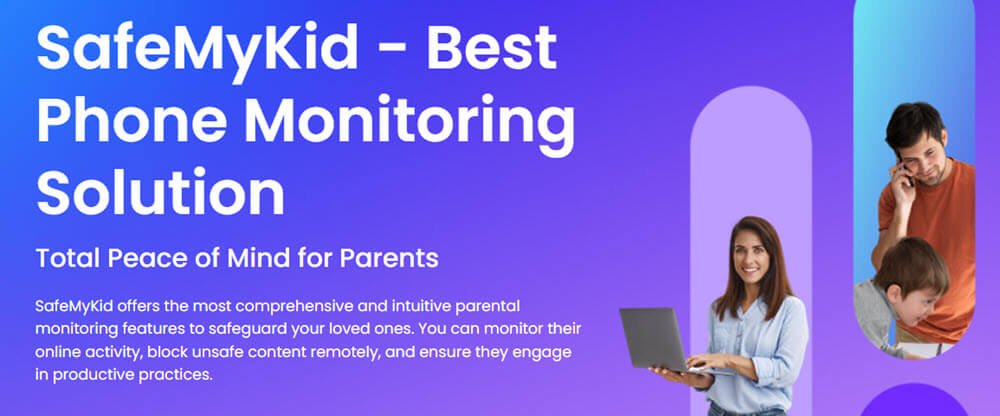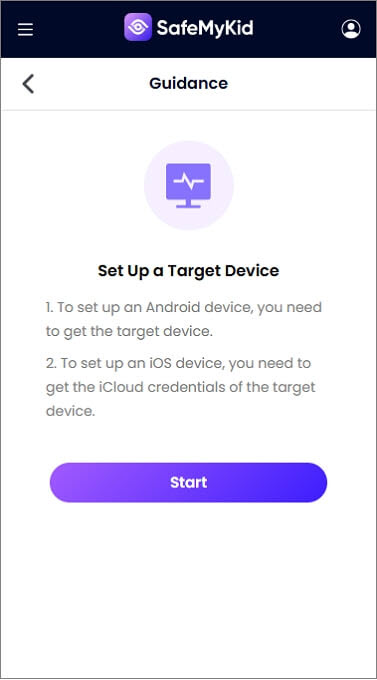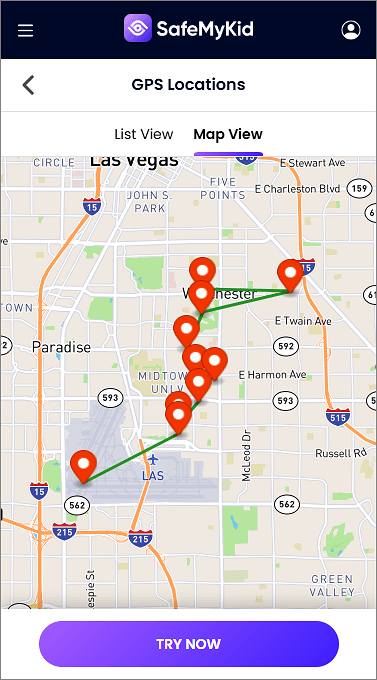Track Couples: 7 Apps to Monitor Couples' Activities and Communications

Tracking couples from a distance using a discreet method ensures real-time location sharing, route history, and custom alerts for safety, trust, and peace of mind every step of the way.
![]()
This blog guide provides everything you need to know about tracking couples, tracking apps for couples, their benefits, and potential concerns.
What It Means to Track Couples Comprehensively
Tracking couples involves monitoring various aspects of partners' activities, communications, and digital interactions to maintain awareness, coordination, or address relationship concerns.
This comprehensive approach moves beyond simple location awareness to include analysis of communication patterns, social media activity, digital behavior, and interpersonal interactions.
While such monitoring serves legitimate purposes in many relationships, the appropriate level of tracking should reflect both partners' comfort levels and the specific needs within each unique relationship dynamic.
Benefits of Tracking Couples for Healthy Relationships
When implemented appropriately with mutual consent, couple tracking offers several benefits that can strengthen relationship dynamics:
- Enhanced Safety- Partners can verify each other's well-being during travel, late work nights, or potentially unsafe situations.
- Simplified Coordination- Location awareness eliminates the need for constant "Where are you?" text messages when planning meetups or estimating arrival times.
- Reduced Anxiety- For partners with anxiety concerns, the ability to confirm a loved one's safety provides meaningful peace of mind.
- Improved Trust - Voluntary transparency can actually build trust by demonstrating a willingness to share information openly.
- Better Communication- Tracking often prompts more meaningful conversations about activities and experiences rather than basic logistics.
- Time Efficiency- Couples save time coordinating pickups, meetings, and shared responsibilities through enhanced awareness.
These benefits highlight why appropriate tracking has become increasingly common in healthy relationships seeking practical solutions for everyday challenges.
SafeMyKid: The Best Couple Tracking App

Despite its family-oriented name, SafeMyKid has emerged as the premier tracking solution for couples due to its comprehensive feature set and reliability.
The app's emphasis on both comprehensive tracking and respectful boundaries makes it the ideal choice for partners looking to enhance their coordination without compromising trust.
This app stands head and shoulders above its competitors by offering the perfect balance of detailed tracking and respect for privacy.
It is the most comprehensive feature set among all tracking apps. It has exceptional reliability with minimal downtime. It offers an outstanding balance between detailed tracking and privacy.
Key Features of SafeMyKid for Couple Tracking
When it comes to monitoring your partner's activities and location, SafeMyKid offers several advantages that make it the preferred choice for couples seeking transparency:
- Continuous Location Tracking- Real-time GPS monitoring with minute-by-minute updates and comprehensive location history.
- Communication Monitoring- Access to calls, texts, and messages across various platforms, including deleted content.
- Social Media Oversight- Visibility into activity across major social networks, including private messages and interactions.
- Customizable Geofencing- Create unlimited zones around important locations with instant alerts when your partner arrives or departs.
- Discreet Operation- Background functionality that doesn't drain the battery or alert the user to active monitoring.
- Cross-Platform Compatibility- Seamless performance across both Android and iOS devices regardless of model.
- Comprehensive Dashboard- All monitoring information is organized in an intuitive interface accessible from any device.
- Activity Timeline- Chronological view of your partner's entire digital footprint throughout the day.
How to Set up SafeMyKid to Track Couples
Setting up SafeMyKid is quick and gives you instant access to Track Couples efficiently.
Step 1. Sign up and Create an Account
Register using your email address and choose a secure password. Complete the account setup process to begin monitoring.

Step 2. Set up The SafeMyKid App
For iPhones: Log in with the iCloud credentials linked to the device. No app installation is needed.
For Android Devices: Download and install the SafeMyKid app directly. The app runs in stealth mode.

Step 3. Use SafeMyKid to Track Couples Trustworthily
Track the couple's activity in real-time using the SafeMyKid dashboard. Get instant keyword alerts and receive location updates, designed to support transparency, trust, and safety in modern relationships.

Other 5 Apps for Tracking Couples
When it comes to staying connected with your partner, not all tracking apps are created equal. Here's our comprehensive breakdown of the best options available right now:
1. Find My (iOS): Best Native Option for Apple Couples
Find My is integrated into all Apple devices, making it a seamless option for couples already using the Apple ecosystem.
It runs efficiently without draining your battery and provides accurate, real-time location tracking.
Features like automation via Apple Shortcuts make it easy to set location-based reminders or alerts. The app is built into iOS and requires no extra downloads or subscriptions.
Pros:
- Zero additional cost for Apple users
- Excellent battery optimization
- Tight integration with the Apple ecosystem
Cons:
- Only works for Apple devices
- Limited customization options compared to dedicated apps
2. Google Maps Location Sharing: Best Cross-Platform Basic Option
Google Maps offers a straightforward way to share locations between Android and iOS users.
It supports temporary or continuous sharing, and since it's part of the Google suite, it integrates well with Gmail, Calendar, and more.
You don't need to install anything extra if you already use Google Maps, and the interface is familiar to most.
Pros:
- Universal compatibility across devices
- Easy to use with no learning curve
- Free with no subscription required
Cons:
- Limited relationship-specific features
- No specialized alerts or customization options
3. Couple Tracker: Best for Relationship-Focused Features
![]()
Couple Tracker stands out by offering tools beyond just location sharing. It includes a shared calendar, love notes linked to specific locations, photo sharing with tags, and the ability to track relationship milestones.
Its privacy-centered design ensures that couples can maintain intimacy while staying connected.
Pros:
- Relationship-enhancing features beyond just tracking
- Romantic elements that strengthen the connection
- Good balance of functionality and privacy
Cons:
- Some features feel gimmicky after extended use
- Occasional syncing delays reported by users
4. GeoZilla: Best for Battery Efficiency
GeoZilla is known for combining accurate tracking with minimal battery drain. It offers a weekly timeline of visited places, smart notifications based on habits, and a family safety report.
It also integrates well with smart home systems like Alexa and Google Assistant, making it more versatile for tech-savvy users.
Pros:
- Outstanding battery optimization
- Smart location prediction features
- Good smart home integration options
Cons:
- Premium features locked behind subscription
- Customer support can be slow to respond
5. Glympse: Best for Temporary Tracking Needs
Glympse focuses on short-term location sharing, making it ideal for couples who don't want constant tracking.
You can share your real-time location for a set amount of time via text or email, and there's no need to create an account for basic use. It even provides ETAs and supports web-based viewing.
Pros:
- Perfect for privacy-conscious couples
- No ongoing commitment required
- Simple, straightforward interface
Cons:
- Limited functionality compared to dedicated apps
- No persistent history or patterns of tracking
How to Choose The Right Couple Tracking Approach
Selecting the appropriate monitoring solution requires careful consideration of your relationship dynamics, technical requirements, and specific monitoring objectives.
Begin by having an open conversation about monitoring goals, ensuring both partners understand and consent to the tracking arrangement. Discuss specific concerns or needs driving the monitoring decision to identify which features are genuinely necessary versus simply available.
Consider the technical compatibility with your devices and the technical comfort level of both partners. Some solutions work better with specific operating systems or require more technical knowledge to implement effectively.
Evaluate privacy preferences and establish clear boundaries about which areas of digital life are appropriate for monitoring versus those that remain private. Even in transparent relationships, some personal space typically benefits both partners.
Finally, start with the minimum level of monitoring necessary to address your specific needs rather than implementing the most comprehensive solution available. This measured approach respects privacy while still addressing legitimate relationship concerns.
Setting Healthy Boundaries with Location-Sharing
While tracking apps can enhance relationship coordination, establishing clear boundaries is essential for maintaining a healthy balance.
The Conversation Every Couple Should Have
Before enabling location sharing, discuss these important questions:
- What are our primary reasons for wanting to share locations?
- Are there times or places where we'd prefer privacy?
- How will we handle notification settings?
- What constitutes appropriate checking behavior?
- Under what circumstances might we temporarily pause sharing?
Relationship therapist Dr. Michelle Roberts recommends revisiting these questions every few months as needs and comfort levels evolve.
Red Flags to Watch for
Location sharing becomes problematic when:
- It's demanded rather than mutually agreed upon
- One partner checks obsessively or questions normal deviations
- It creates anxiety rather than reducing it
- It's used to "catch" a partner in lies rather than for coordination
- It becomes a substitute for trust and communication
If you notice these patterns emerging, it may be time to reassess how location-sharing functions in your relationship.
Privacy and Security: What Couples Should Know
![]()
Even when sharing with a trusted partner, digital security remains important.
Protecting Your Data
Most tracking apps store significant information about your movements and routines. Consider these security measures:
- Use strong, unique passwords for all tracking accounts
- Enable two-factor authentication when available
- Regularly review app permissions
- Understand the app's data retention policies
- Know how to quickly disable tracking if your phone is lost
Managing Third-Party Access
Be aware that free tracking apps often monetize through data collection. Review privacy policies to understand whether your location data may be shared with advertisers or other third parties.
FAQS about Couple Tracking
Before you choose an app, it's helpful to understand how these tools work. Here are a few frequently asked questions:
1. Is it healthy for couples to track each other's locations?
Location sharing can be healthy when it's consensual, mutual, and based on practical needs rather than suspicion.
Healthiness depends more on the motivation and implementation than on the technology itself.
2. What should I do if my partner wants to track my location, but I'm uncomfortable?
Express your concerns specifically and suggest alternatives that address their underlying needs (safety, connection) without continuous tracking. If they insist despite your discomfort, consider consulting a relationship counselor.
3. Can tracking apps like SafeMyKid be used without my partner knowing?
While technically possible, installing tracking software without someone's knowledge and consent is ethically problematic and potentially illegal in many jurisdictions.
4. How often is it normal to check your partner's location?
Healthy checking typically happens for specific purposes, like seeing if they're on their way home or checking if they've arrived safely at a destination, rather than continuous monitoring.
5. What's the best free option for couple tracking?
Google Maps location sharing provides reliable basic tracking at no cost across both Android and iOS devices. For Apple users, the built-in Find My app offers excellent free functionality.
Conclusion
Finding the right approach to track couples requires balancing technological capabilities with relationship dynamics and appropriate boundaries.
Comprehensive solutions like SafeMyKid offer extensive monitoring across multiple dimensions. It also offers app activity insights, creating a secure, transparent way to build stronger communication and mutual understanding.

